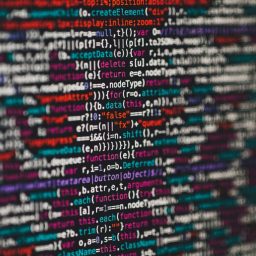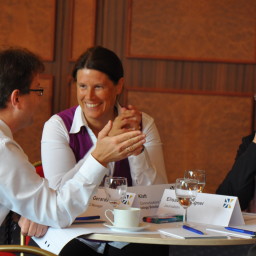
Perhaps the clinching point is that trust is an essential ingredient of belief formation. Why? Because we don’t have the time to check the evidence for everything, so we have to take some things at face value. We trust doctors, chemists, and teachers. Even experts trust other experts, taking their data and outputs as inputs for their own … | Matthew Syed Continue reading Trust Is an Essential Ingredient of Belief Formation Matthew Syed

Distinguishing between misinformation and disinformation is crucial. Misinformation comes from those who genuinely believe what they say, while disinformation involves deliberate deception, cover-ups, or the spreading of falsehoods. Differentiating between them can be challenging, and even trusted sources may inadvertently spread misinformation. | David Gurteen Continue reading Distinguishing Between Misinformation and Disinformation Is Crucial David Gurteen

A young man came to complain that his girlfriend had let him down, that she had played false. What are you complaining about? Did you expect any better? Expect the worst, you’re dealing with selfish people. You’re the idiot – you glorified her, didn’t you? You thought she was a princess, you thought people were nice. They’re not! They’re not nice. … | Anthony de Mello Continue reading Are People Untrustworthy or Is It Just Our Bad Judgement? Anthony de Mello

In the book, Liars and Outliers, Bruce Schneier examines the role of trust in enabling healthy, functioning societies. Schneier argues that some level of trust is essential for large-scale social coordination and cooperation. Without trust, societies cannot thrive, and individuals are forced to avoid interactions or spend heavily on protection from abuse and cheating. The … Continue reading Liars and Outliers: Enabling the Trust That Society Needs to Thrive by Bruce Schneier (2012)

Understanding our Political Nature: How to put knowledge and reason at the heart of political decision-making Abstract Recognising that advances in behavioural, decision and social sciences demonstrate that we are not purely rational beings, this report brings new insights into our political behaviour and this understanding have the potential to address some of the current … Continue reading Understanding Our Political Nature EU Science Hub (2019)

The “good faith” principle | Julia Galef Posts where this video is embedded Converse in Good Faith Be sincere, fair, open, and honest, regardless of the outcomePeople: Julia GalefJulia Galef Writer and public speakerPosts: Julia GalefConverse in Good Faith Be sincere, fair, open, and honest, regardless of the outcomeScience Curiosity A desire to seek out and consume … Continue reading The Good Faith Principle Julia Galef, 2017

Technology and Democracy: Understanding the influence of online technologies on political behaviour and decision-making Abstract Drawing from many disciplines, the report adopts a behavioural psychology perspective to argue that “social media changes people’s political behaviour”. Four pressure points are identified and analysed in detail: the attention economy; choice architectures; algorithmic content curation; and mis/disinformation. Policy … Continue reading Technology and Democracy EU Science Hub (2020)

The more traditional forms of leadership based on static hierarchies and professional distance between leaders and followers are growing increasingly outdated and ineffective. As organizations face more complex interdependent tasks, leadership must become more personal to guarantee open, trusting communication that will make collaborative problem solving and innovation possible. AustraliaAustriaBrazilCanadaChinaCzech RepublicEgyptFranceGermanyGlobalIndiaItalyJapanMexicoNetherlandsPolandSaudia ArabiaSingaporeSpainTurkeyUAEUnited KingdomUnited States … Continue reading Humble Leadership: the Power of Relationships, Openness and Trust by Edgar H. Schein, Peter A. Schein (2018)

Productive disagreement depends on how people feel about each other. We spend a lot of time thinking about how to argue, and not enough on how to shape the relationship that will define how the engagement goes. It’s often said that in order to disagree well, people need to put emotions aside and think purely rationally, but this is a myth. … | Ian Leslie Continue reading Productive Disagreement Depends on How People Feel About Each Other Ian Leslie

We trust people because they showed up when it wasn’t convenient, because they told the truth when it was easier to lie and because they kept a promise when they could have gotten away with breaking it. | Seth Godin Continue reading Why Do We Trust People? Seth Godin

A positive relationship is one in which two people listen, communicate clearly without judgment, respect, and trust each other, as well as support, encourage, and help each other on a practical and emotional level. | David Gurteen Continue reading What Is a Positive Relationship? David Gurteen

The liberal democracy is an artificial environment, carefully crafted to both contain human nature and convert it into an engine of progress. When we grow up within an artificial habitat that values human inventions like reason and fairness and humanity, it can be easy to forget just how tenuous that environment is. It’s easy to forget that we’re living in a rare anomaly within human history—an … | Tim Urban Continue reading The Liberal Democracy Is an Artificial Environment Tim Urban

For some of our most important beliefs, we have no evidence at all, except that people we love and trust hold these beliefs. Considering how little we know, the confidence we have in our beliefs is preposterous – and it is also essential. | Daniel Kahneman Continue reading For Some of Our Most Important Beliefs, We Have No Evidence at All Daniel Kahneman

This is an external resource such as an article, blog. Below is a summary of the key points from the resource, along with a link to the complete article. The full article can be accessed via the link if you would like to read the content in its entirety. Big Think: Humanity solved the “trust … Continue reading Humanity Solved the “trust Paradox” by Going Tribal — and Paid a Horrific Price David R. Samson (2023)


This is an external resource such as an article, blog. Below is a summary of the key points from the resource, along with a link to the complete article. The full article can be accessed via the link if you would like to read the content in its entirety. Blog Post: Human Systems Are Almost … Continue reading Human Systems Are Almost Always Based on Trust Dave Pollard (2023)

The Speed of Trust by Stephen M. R. Covey explores the role of trust in business, organizations, and personal relationships. The main concept of the book is that trust is the basis of successful relationships, leadership, business, and society as a whole. Covey argues that trust can provide organizations and individuals with immense competitive advantages, … Continue reading The SPEED of Trust: the One Thing That Changes Everything By Stephen M. R. Covey (2006)

This is an external resource such as an article, blog. Below is a summary of the key points from the resource, along with a link to the complete article. The full article can be accessed via the link if you would like to read the content in its entirety. HBR: Rethinking Trust by Roderick M. … Continue reading Rethinking Trust Roderick M. Kramer (2009)

There are no sources of information we can totally trust. We must conduct due diligence through thorough research and analysis. To make sound decisions and meaningful actions, we must avoid shortcuts and laziness, putting in the necessary effort. | David Gurteen Continue reading There Are No Sources of Information We Can Totally Trust David Gurteen

Beliefs are ideas that we hold to be true. However, we have no evidence to support many of them. False beliefs lead us to the wrong conclusions. We need to question and challenge our beliefs continually. Continue reading What Are Beliefs? Ideas that are held to be true but not necessarily supported by any evidence

The Argumentative Theory of Human Reason Knowledge Is Communal Close Pop-up all posts in this chapter What’s the Vibe? Please be patient as this may take up to a minute to load… Close As individuals, we know almost nothing compared to what we think we know. Our individual knowledge is mostly a delusion. We are … Continue reading The Knowledge Delusion We know far less than we think we do

The Knowledge Delusion The Extended Mind Close Pop-up all posts in this chapter What’s the Vibe? Please be patient as this may take up to a minute to load… Close We think we know more than we do, but most of our knowledge exists in the minds of others. This shared understanding allows us to … Continue reading Knowledge Is Communal Most of our knowledge resides in other people

Rethinking Our Beliefs The Allure of Simple Stories Close Pop-up all posts in this chapter What’s the Vibe? Please be patient as this may take up to a minute to load… Close What we consider to be our personal knowledge is mostly a delusion. Most of the knowledge we think we own resides in other … Continue reading Trust & Belief Formation Trust plays a critical role in forming our beliefs

Science Curiosity The Global Information Ecosystem Close Pop-up all posts in this chapter What’s the Vibe? Please be patient as this may take up to a minute to load… Close To discredit someone means to cause them to lose people’s respect or trust. We acquire most of our knowledge by accepting the beliefs of those … Continue reading Discrediting People ** Cause them to lose the respect or trust of others


Online platforms personalize content based on past behavior, shaping what information we see. This creates filter bubbles and epistemic bubbles, limiting exposure to diverse perspectives. Recognizing these patterns helps break out of intellectual isolation and engage with broader viewpoints. Continue reading Filter Bubbles, Epistemic Bubbles and Echo Chambers Distort the reality of the world

In an article in the Harvard Business Review, Rebuilding Companies as Communities, Henry Mintzberg talks about a concept called communityship. So what is communityship? Continue reading What Is Communityship? Where everyone in a community practices leadership

An interesting conundrum arises when considering the Jewish religious law forbidding Lashon Hara (speaking derogatorily about someone) and building social trust through gossip. Why would Jewish religious law consider gossip bad while anthropologists consider it good? Continue reading Gossip and Lashon Hara Conversation about other people

Converse in good faith: Converse with the intent to be sincere, fair, open, and honest, regardless of the outcome of the interaction. Continue reading Converse in Good Faith Be sincere, fair, open, and honest, regardless of the outcome

Conversation Sharpens the Saw Bake Conversation Into All That We Do ** Close Pop-up all posts in this chapter What’s the Vibe? Please be patient as this may take up to a minute to load… Close Conversation permeates our organizational lives. Organizational Conversation is the myriad of conversations that occur minute-to-minute every day within an … Continue reading Organizational Conversation ** The conversation is the organization

Reframing Questions Raising the Ships on the Sea Close Pop-up all posts in this chapter What’s the Vibe? Please be patient as this may take up to a minute to load… Close Trust is the force that holds our society together. It is the glue that connects us, builds communities, and is one of the … Continue reading Exploring the Multifaceted Roles of Trust in Relationships and Society Without trust our civilization would collapse
















